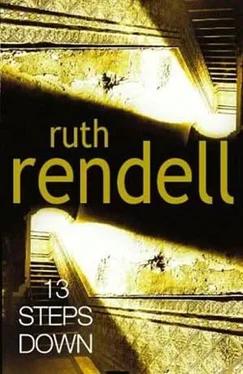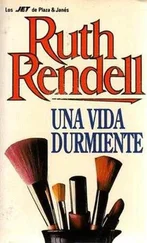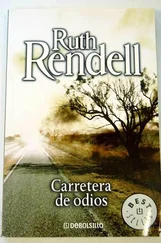It was seeing the film that started him off. He was still living at home then and he watched it on his mother's old black-and-white television. Never much for reading, he had found the book of the film, as he thought of it, on a stall outside a junkshop. It came as a surprise when he looked at the photographs and saw that John Reginald Halliday Christie looked, not like Attenborough, but far more like himself. Of course he was a lot younger and he didn't wear glasses. He forced himself to look in the mirror long enough to be sure of the resemblance. In a funny way it seemed to bring him and the mass murderer closer together, and it was from that trifle that he began referring to him in his mind as Reggie rather than Christie. After all, what had he done that was so terrible? Rid the world of a bunch of useless women, hookers and streetwalkers, most of them.
Reggie. The name sounded nice. Sort of warm and friendly. It was no surprise to Mix to discover in his reading that people had liked Reggie, looked up to him and admired him, a lot of them. They had recognized in him a man of power. That was one of the things Mix liked about him, that he was a strongman. He would have made a good father, wouldn't have stood any nonsense from his kids but wouldn't have knocked them about either. That wasn't Reggie's way. Fleetingly, as happened every day, Mix thought of Javy. To his mind, women shouldn'tbe allowed to give their children stepfathers.
Driving home from Colette's, his thoughts returned to what old Chawcer had told him. He was still amazed by it. She had actually been to Reggie's house. She had met Reggie. To Mix, at his age, Reggie seemed to have lived in a far distant time, in history really, but he realized that was not so for old Chawcer. She must be in her eighties and, when Reggie had lived in Rillington Place, had still been young, had been a girl. Now, as all the books said and everyone knew who was interested, Reggie had lured his victims to his house by posing as an abortionist. Therefore, she must have gone to him with that in view. What else?
Because he was himself young in the twenty-first century, Mix thought things had always been the way they were now. Old Chawcer's youth, as far as sexual encounters went, would have been much as his was, love affairs, one-night stands, and sex as often as one could get it. Old Chawcer would have been careless, forgotten her pill, as they did, and found herself up the spout. What little Mix knew about the law was concentrated on the liability of exercise equipment manufacturers and retailers for the safety of their products. Of acts making abortion legal he was ignorant, only supposing that when old Chawcer was young you couldn't just go to a hospital and get it done. It stood to reason. If that had been possible Reggie would have been out of business.
The big question was: If she'd been there and in his hands, why was she still alive after fifty years? Maybe he would never know but he longed to find out.
In his flat it was almost entirely quiet. All his windows overlooked sections of flat roof and bits of gables and the wild untended garden at the back. The gardens down here were wildernesses except one and it was neat with mown lawn and rosebeds. Most nights, after it got dark, which happened late, he saw two eyes, bright as green flames, staring up at him out of the dense foliage of the ivy that climbed unrestrainedly overwall and trellis. Old Chawcer went to bed early, he supposed. Because the house stood alone no sound could ever be heard from neighbors. If you slept in the front part, you might sometimes be woken by the shrieks and shouts and bursts of music from cars he'd heard someone call the new cries of London. In the back where he was there was little to disturb you. A child of his time and one who had grown up on a noisy housing estate, he would occasionally have welcomed audible signs of life outside. Here the silent hours passed by as if time and the world had forgotten all about you. Except for the Westway. Like a great gray centipede it marched across west London on its hundred concrete legs, its ceaseless moving burden making sea sounds.
He opened the fridge door. An obsessively tidy person, he thought he had left his Boot Camp precisely in the center of the middle shelf and two inches in from the front. It was very unlike him to have put it on the left-hand side, pushed up against a Tesco chocolate log. Thoughtfully, he sipped it. He must have been in a hurry to get out, that was the explanation.
His drink half-consumed, he stood in front of Nerissa's picture and said to it, said to her, "I love you. I worship you." He raised his glass and drank to her. "You know I adore you."
Gwendolen Chawcer's home in St. Blaise Avenue had been built in 1860 by her grandfather, her father's father. Notting Hill was countrified then, with lots of open spaces and new buildings, and was supposed to be a healthy place to live. The Westway was not to be thought of for another hundred years, the first section of the London Underground, the Metropolitan Railway from Baker Street to Hammersmith, would be built in three years' time, but the site of the street later called Rillington Place was open land. Gwendolen's father, the professor, was born in St. Blaise House in the nineties of that century and she herself in the twenties of the next one.
The neighborhood went down and down. Because it was cheap, immigrants moved in in the fifties and lived in rundown North Kensington and Kensal Town, in Powis Square and Golborne Road, and it was a man from the Caribbean who found the first body in the Christie case when taking down a wall in the flat he had moved into. Hippies and flower people lived up there in the next two decades. Ladbroke Grove was so familiar a part of their lives that they called it affectionately "the Grove." In their rented rooms and flats they grew cannabis in cupboards with ultraviolet light inside. They dressed in cheesecloth and the concept of the Global Village was born.
Miss Chawcer knew nothing of this. It flowed over her. She was born in St. Blaise House, had no brothers or sisters and was educated at home by Professor Chawcer, who had a chair of philology at London University. When she was a little over thirty her mother died. From the first the professor had been against her taking any sort of job, and what the professor was against invariably didn't happen, just as what he was in favor of did. Someone had to look after him. The maid had left to get married and Gwendolen was a natural to take her place.
It was a strange life she led but a safe one, as any life must be that is without fear or hope or passion or love or change or anxiety about money. The house was very large, on three floors, innumerable rooms opening out of square hallways or long passages, with a great grand staircase consisting of four flights. When it seemed certain Gwendolen would never marry, her father had three rooms on the top floor converted into a selfcontained flat for her, with its own hallway, two rooms, and akitchen. The lack of a bathroom had nothing to do with her disinclination to move in. "What was the point of being up there when her father was always down in the drawing room and always, it seemed, hungry for his meals or thirsty for a cup of tea? Her unwillingness to go up to the top floor started at that point. She only went up there if she had lost something and had exhausted all other places where it might be.
Nothing had been painted in the rest of the house and no other rooms had been modernized. Electricity had been installed, but not everywhere, and the place had been rewired in the eighties because the existing wiring was dangerous. But where the old cables had been taken out and the new ones inserted, the walls had been plastered up over the holes but no redecoration had been done. Gwendolen said herself she wasn't much of a cleaner. Cleaning bored her. She was happiest when sitting about and reading. She had read thousands of books, seeing no point in doing anything else unless you had to. When she shopped for food, she kept to the old shops as long as she could, and on the departure of the grocer and the butcher and the fishmonger, she went to the new supermarkets without registering that the change had affected her. She liked her food well enough and had made few changes to her diet since she was a young girl, except that with no one to cook for her she barely ate hot meals.
Читать дальше











